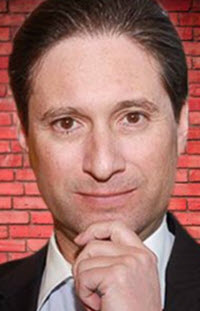Become a Patreon!
Abstract
Excerpted From: Mark B. Baer, The Amplification of Bias in Family Law and its Impact, 32 Journal of the American Academy of Matrimonial Lawyers 305 (2020) (128 Footnotes) (Full Document)
 There's an old saying that “in this world nothing can be said to be certain, except death and taxes.” However, it is also a certainty that nobody and nothing is perfect. Related to that is another certainty, which is, “if you have a brain, you're biased.”
There's an old saying that “in this world nothing can be said to be certain, except death and taxes.” However, it is also a certainty that nobody and nothing is perfect. Related to that is another certainty, which is, “if you have a brain, you're biased.”
Bias is defined as “an unfair personal opinion that influences your judgment.” And, such an “unfair personal opinion” can be in favor of or against someone or something. Biases are preferences and opinions, which are not the product of research and thoughtful analysis. Thus, the more subjectivity involved, the greater the potential for influence of bias.
Objective facts are unquestionable. There are no “alternative” objective facts. Subjective facts, on the other hand, are those which rely upon interpretation or human analysis. To the extent that something is questionable, there can be “alternative” facts, opinions, interpretations, preferences, perceptions and points of view.
Biases are “blind spots” in judgment and decision-making. Along those lines, yet another certainty is that there is always a reason, even if unconscious, why a person performs a certain action. People may not know, understand, or agree with it, but there is always a reason underlying an action. Meanwhile, “neuroscience explains that all our perceptions of the outside world and of the minds of others are simply our own subjective perspective on what is going on, created by our own brain.” In other words, when it comes to the intention or purpose underlying an action, bias may well have played a part.
This article addresses bias within the field of family law and its impact, specifically the biases harbored by all those involved in family law, such as the clients, attorneys, experts, mediators, and judges. Part II of this article traces public biases regarding dispute resolution. Part III focuses specifically on the biases of family law attorneys. In Part IV the article examines the biases of mediators, while Part V explores the biases of experts. Part VI unpacks biases that judges may have, while Part VII does the same for lawmakers. The article concludes that lawyers would generally serve their clients more effectively if they utilized a non-adversarial counseling and problem-solving approach before taking an adversarial approach, which includes litigation.
[. . .]
The importance of all of this information “assumes that the truth matters.” In that regard, attorneys should never lose sight of the fact that “the adversarial process lies at the heart of the American system of law because it is thought to be the royal road to truth.”
Furthermore, remember that this particular organization - the American Academy of Matrimonial Lawyers - released its Bounds of Advocacy in 2000 for the purpose of discouraging lawyers from zealously advocating when families are involved, and encouraging them to utilize a counseling and problem-solving approach. That document referred to the lawyer taking this approach as “a counselor” and called this approach “constructive” for the welfare of families and society's preservation. It made clear that lawyers should be familiar with non-adversarial processes and approaches for resolving family law matters, such as mediation. And, most importantly, it stated, “At its best, matrimonial law should result in disputes being resolved fairly for all parties, including children.”
However, as a result of all of the biases set forth herein, among other reasons, the goals set forth by this very organization almost two decades ago have yet to be achieved. While attorneys cannot imbue others with emotional self-awareness or control, what, if anything, they do with it, attorneys can work to develop their own emotional intelligence, a first step of which involves education - the ultimate purpose of this article.
Mediator / Consulting Attorney / Conflict Resolution Consultant, Pasadena, California, http://www.markbaeresq.com.
Become a Patreon!


